TDWI Checklist Reports
TDWI Checklist Reports provide an overview of success factors for a specific project in business intelligence, data warehousing, or a related data management discipline. Companies may use this overview to get organized before beginning a project or to identify goals and areas of improvement for current projects.
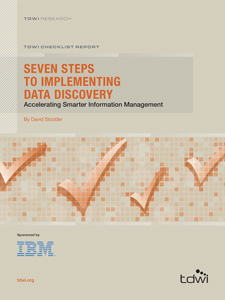
September 19, 2011
This report examines the role of data discovery in meeting critical information management objectives for understanding data quality and enabling master data management (MDM), data consolidation, and sensitive data protection.
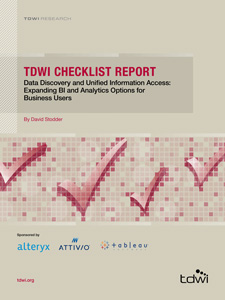
August 7, 2011
This Checklist Report focuses on helping organizations understand how data discovery and UIA tools address new requirements for data access, reporting, and analytics, particularly for nontechnical users in lines of business and operations.
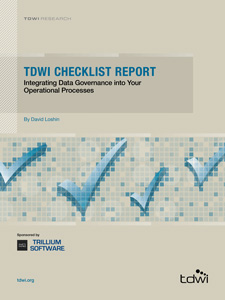
August 5, 2011
This TDWI Checklist Report details recommendations that connect high-level policies to specific actions, and shows the ways that data governance tasks can be integrated into existing operational processes. Following the items on this Checklist will energize your data governance program and ensure its integration within operational workflows.
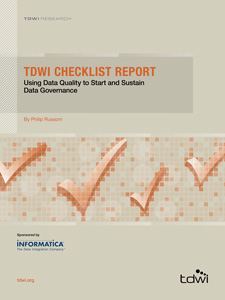
July 26, 2011
This TDWI Checklist Report makes a case for applying data quality (DQ) techniques and best practices to data governance (DG) as a way of kick-starting and sustaining data governance.
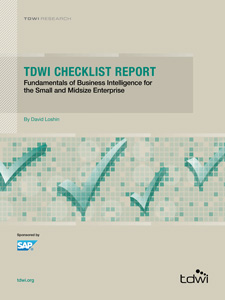
June 20, 2011
This TDWI Checklist Report describes the fundamental aspects of BI that are necessary to help small and midsize enterprises achieve scalability by revealing new business opportunities, enabling rapid response to emerging issues, and continuously monitoring business success.
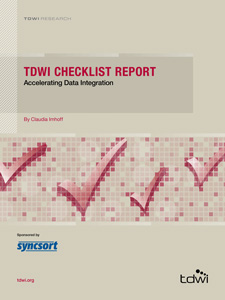
May 31, 2011
This TDWI Checklist Report helps you determine if your data integration environment has performance issues. It describes alternative solutions and includes the pros and cons for each.
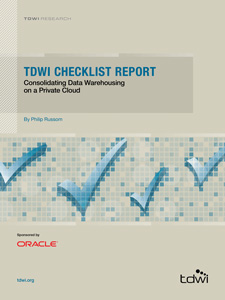
May 10, 2011
This TDWI Checklist Report makes a case for private database clouds, especially as a platform for consolidated BI and DW applications.

October 29, 2010
If your organization is among the vast majority of businesses looking to implement real-time data warehousing or data integration functions, download this report for a practical look at some critical questions.
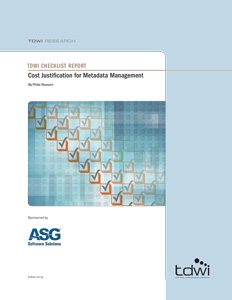
August 16, 2010
This TDWI Checklist Report explains how to provide justification for time and money invested in metadata management solutions.